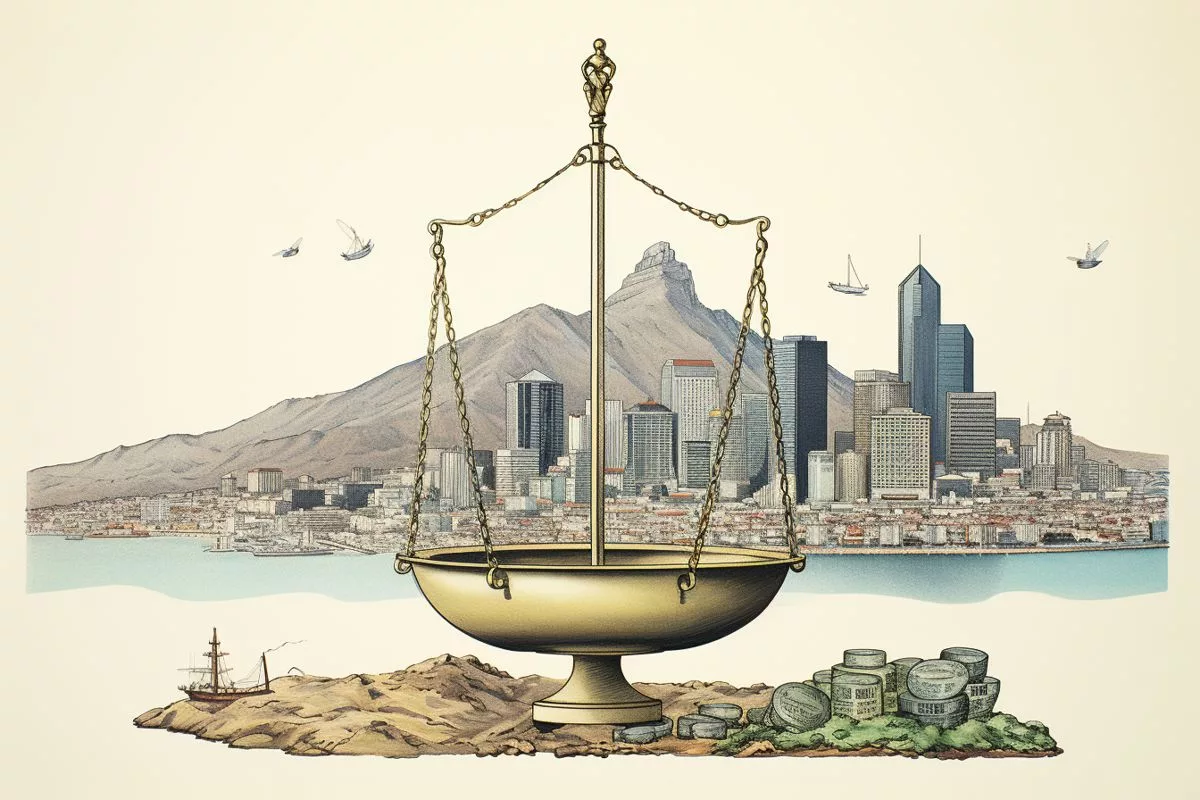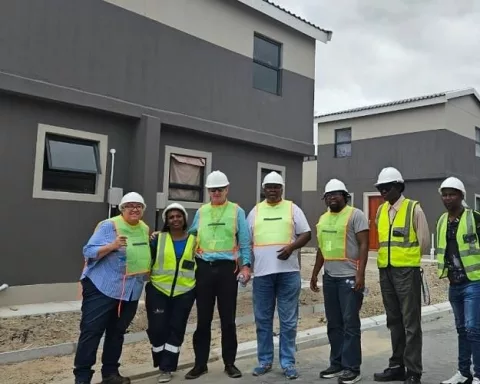Cape Town’s Mayor, Geordin Hill-Lewis, has spoken out against the national government’s plan to cut R107m from the city’s housing funding. These cuts are part of a nationwide reduction of grant-funding for provinces and municipalities, potentially reaching hundreds of millions. Mayor Hill-Lewis criticized the government’s failure to prioritize essential services and instead transferring the cuts to provincial and local governments responsible for providing basic services. The city is committed to using all legal avenues to resist further deductions from its equitable share funding.
Cape Town’s Mayor, Geordin Hill-Lewis, has denounced the deduction of R107m from the city’s housing funding provided by the national government. These cuts are part of a larger, nationwide minimization of grant-funding for provinces and municipalities, which could potentially reach hundreds of millions. The reductions solely target funding for fundamental services in provinces and municipalities, rather than addressing the bloated, imprudent national government.
In an unforeseen development, Cape Town’s Mayor, Geordin Hill-Lewis, has publicly denounced the impending deduction of R107m from the city’s housing funding provided by the national government. This withdrawal is part of a larger, nationwide minimization of grant-funding for provinces and municipalities. The city is committed to using all legal avenues at its disposal to resist further expected deductions from its equitable share funding during the release of the national budget next year.
Mayor Hill-Lewis has voiced his anxiety that these additional reductions could potentially reach hundreds of millions. These cuts are particularly distressing as they coincide with a period when numerous citizens are still recovering from previous financial challenges.
The Impact of National Budget Cuts
“Due to significant mid-year budget reductions enforced by the National Treasury, particularly affecting our grant funding for housing projects, informal settlement upgrades, and community facilities, we are forced to consider an adjustment budget,” Mayor Hill-Lewis declared at a City Council assembly.
Traditionally, the grants confirmed in the annual national budget each February are maintained throughout the year. Nonetheless, the current precarious condition of the national finances has forced the National Treasury to frantically search for areas where they can economize.
Mayor Hill-Lewis contended that in periods of economic crises, it is the government’s responsibility to prioritize and safeguard essential services. He reproached the national government for failing to do so, instead, transferring the bulk of the cuts to provincial and local governments, who are accountable for providing basic services directly.
The National Government’s Role in Funding Cuts
Hill-Lewis emphasized that the cuts were targeted towards funding for fundamental services in provinces and municipalities, rather than addressing the bloated, imprudent national government. He pointed out the inefficiencies in an array of government departments and the excessive number of deputy ministers.
To reinforce his standpoint, the mayor invited his audience to contemplate the government’s inaction towards wasteful departments, preferring instead to cut expenditure that directly enhances the lives of the underprivileged. He highlighted the potential consequences of these cuts on tangible aspects of life – from new houses, taps, lights, to parks, roads, and the capability for emergency services to access informal settlements.
The reductions in Cape Town’s national funding share include R37m from the Informal Settlement Upgrading Partnership Grant and R70m from the Urban Settlements Development Grant.
The mayor did not mince words about the African National Congress’ (ANC) involvement in these decisions, which he described as ‘fundamentally anti-poor.’ He criticized the ANC’s failure to oppose the budget suggested by the Cabinet in a recent Parliament session.
The Western Cape Funding Struggles and the Future
Simultaneously, the Western Cape Government has experienced over R1 billion in cuts from its national funding. The mayor extended the city’s full backing to Premier Alan Winde in declaring an intergovernmental conflict.
Mayor Hill-Lewis also assured that Cape Town would persist in its fight for increased equitable share funding. According to recent census data, the city’s population is anticipated to exceed that of Johannesburg.
In a concluding warning to the national government and supporters of these cuts, Hill-Lewis cautioned that Cape Town would be closely monitoring the forthcoming national budget in February. He demanded a fair and equitable share of funding, reflecting the city’s size, population, and growth.
The mayor concluded, “If our Metro’s equitable share were to reduce in February’s budget by anywhere near the amount that it is reportedly going to be cut, you can expect swift action from us too to protect spending for poor communities. If we can no longer simply appeal to your conscience to get your priorities right, we will turn to the legal processes at our disposal.”
The city now holds its breath, hopeful yet ready for the ensuing battle. As the national budget approaches, the future of Cape Town’s housing projects, and ultimately the well-being of its people, hang in the balance.
1. What is Cape Town’s battle against funding cuts for housing projects?
Cape Town’s Mayor, Geordin Hill-Lewis, has spoken out against the national government’s plan to cut R107m from the city’s housing funding, which is part of a nationwide reduction of grant-funding for provinces and municipalities that could potentially reach hundreds of millions. The city is committed to using all legal avenues to resist further deductions from its equitable share funding.
2. What is the impact of national budget cuts?
The cuts target funding for fundamental services in provinces and municipalities, rather than addressing the bloated, imprudent national government. Mayor Hill-Lewis has emphasized that in periods of economic crises, the government’s responsibility is to prioritize and safeguard essential services. The national government has failed to do so, instead transferring the bulk of the cuts to provincial and local governments, who are accountable for providing basic services directly.
3. What is the national government’s role in funding cuts?
The cuts were targeted towards funding for fundamental services in provinces and municipalities, rather than addressing the inefficiencies in an array of government departments and the excessive number of deputy ministers. Mayor Hill-Lewis criticized the ANC’s involvement in these decisions, which he described as ‘fundamentally anti-poor.’
4. What are the Western Cape funding struggles and the future?
The Western Cape Government has experienced over R1 billion in cuts from its national funding. The mayor extended the city’s full backing to Premier Alan Winde in declaring an intergovernmental conflict. Cape Town will persist in its fight for increased equitable share funding, reflecting the city’s size, population, and growth.
5. What are the reductions in Cape Town’s national funding share?
The reductions include R37m from the Informal Settlement Upgrading Partnership Grant and R70m from the Urban Settlements Development Grant.
6. What is the mayor’s warning to the national government and supporters of these cuts?
Cape Town would be closely monitoring the forthcoming national budget in February. The mayor demanded a fair and equitable share of funding, reflecting the city’s size, population, and growth. If the Metro’s equitable share were to reduce in February’s budget by anywhere near the amount that it is reportedly going to be cut, swift legal action will be taken to protect spending for poor communities.











